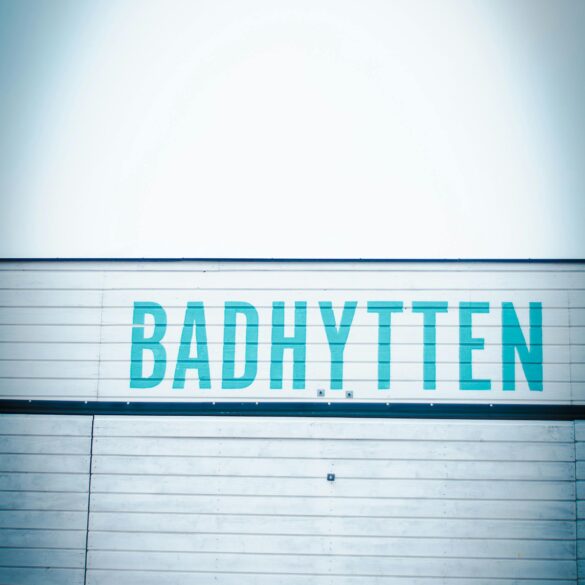Czech Small Business Guide: Proven Success With Limited Capital
Ever wondered what separates the handful of thriving Czech entrepreneurs from all those endless “ideas in a notebook” that never see daylight? Having spent over a decade embedded in the region’s small business trenches—interviewing everyone from Prague bistro owners to Moravian e-commerce pioneers—I’ve come to believe that launching and scaling a Czech company on a shoestring is about two things: radical practicality and relentless authenticity.
Let’s be brutally honest. The glittering startup stories out of Silicon Valley (or even Warsaw these days) don’t translate 1:1 here in the Czech Republic. Rules are different. Capital flows “differently”—and sometimes not at all. But, over the past ten years, a very real Czech playbook has quietly emerged for launching something significant with less cash than most people spend on a single vacation1.
So, whether you’re nursing a homemade jam business idea in Brno, daydreaming about a SaaS SaaS solution from Ostrava, or simply trying to move from corporate cubicle to your own living room office in Prague, this is truly the field guide I wish I’d had at the start. What I’ve learned—and continue to learn, sometimes the hard way—is that small but shrewd moves matter way more here than headline-grabbing growth hacks.
Honestly, for most readers—and certainly for me, back when I started—succeeding in Czech entrepreneurship isn’t about “blitzscaling.” It’s about outlasting the first six months with your skin (and bank balance) intact, mastering the unique local maze of red tape, and building a real business that outpaces inflation, competition, and skepticism from all sides.
Here’s the complete, unvarnished roadmap: real Czech strategies, true stories, actionable steps, and hard-earned lessons from others—and from me. Ready to shape your own business destiny, even on limited startup capital? Then let’s dive in.
What Actually Works in Czech Small Business
Here’s where I had to let go of all my imported business preconceptions. The Czech ecosystem simply runs to its own rhythm; it favors the quietly consistent over the dangerously flashy. The magic formula, if there is one, almost always comes down to:
- Hyperlocal insight and small, rapid feedback loops
- Extreme resourcefulness—“z nouze ctnost,” as locals say (“necessity is the mother of invention”)
- An allergy to debt—bootstrapping is truly in the Czech DNA
- Resilient humility in the face of bureaucracy, rejection, and slow wins
Interestingly enough, these patterns hold no matter if you’re selling handmade koláče at a weekend market, launching a consulting brand, or trying out a niche tech solution for Czech SMEs. I still remember sitting in a smoky Žižkov café with a group of local founders and realizing just how many had launched with less than 50,000 CZK (about €2,000) in total capital—yet survived longer than much larger foreign-backed startups2.
KEY LESSON: Small Is the Starting Point, Not a Failure
In Prague, smaller often means safer and smarter. Large-scale launches may look glamorous but tend to combust without local fit. Almost every genuinely successful Czech business I’ve profiled started tiny, then quietly iterated their way up.
Starting Smart: Legal Basics, Registration & First Steps
Okay, let’s step back for a second. Before you get blinded by product ideas or logo colors, the bureaucratic checklist needs tackling—a stumbling block for countless would-be founders.
- Define your business structure: Živnostenský list (trade license/sole proprietorship) is the default lean choice.
- Register at your local živnostenský úřad (Trade Licensing Office); process is cheaper and simpler than most expect—think soft costs under 2,000 CZK.
- Open a company bank account (check fees! Czech banks vary wildly on charges for new firms).
- Notify health insurance and social security offices—yes, even for side hustles.
If you’re not natively Czech or don’t read legal Czech, my blunt advice: invest a few hundred korunas in a professional translator or small business advisor. It will save your sanity (and wallet) from late penalties or missed registrations. Trust me—I learned Das particular lesson the difficult way in my second year.
Market Research on a Shoestring—Czech Style
This is where most ambitious business blogs get it wrong—urging founders to “invest in deep market research” without realizing that, on a tight Czech budget, such platitudes quickly hit a wall. Here’s what I’ve learned: the most successful local founders treat market research as a living conversation, not a spreadsheet.
- Use hyperlocal Facebook groups (e.g., Praha: Podnájem, Pronájem, Bydlení) for soft surveys and sentiment checks.
- Walk the target neighborhoods—notice which businesses are thriving and which spaces stay vacant (and for how long).
- Leverage cheap local events—from farmers’ markets to small trade fairs—for “pay-to-test” business validation.
Case in point: A Brno-based software founder shared with me how she validated her B2B SaaS app for construction firms in under two weeks—no surveys, no agency fees. She literally called and visited a dozen small contractors, got raw feedback, offered a test version, and refined her pitch on the fly4. That sort of “out in the field” market research costs more coffee than cash—and, frankly, is far more telling than data behind a paywall.
DIY Market Research Tactics (Zero-Budget Friendly)
- Create a simple poll in a relevant Czech Facebook or LinkedIn group to test market demand.
- Offer “mini-pilot” versions of your service/product in local community spots—collect cash and feedback fast.
- Ask potential customers: “Why do you currently solve this problem the way you do?”—then listen and take notes.
There’s a knack to this, and it’s not about perfection. I used to overthink my first survey questions, worried I’d sound “too basic” or “unprofessional.” But honestly, the unpolished, direct approach often sparks more raw feedback than anything overly rehearsed. Go for connection, not polish.
Praxistipp
Validate your idea with 10 real conversations or sales vor you spend a single koruna on design, packaging, or marketing. If nobody bites, tweak (or ditch) the idea fast—a truly Czech approach.
Funding Your Business With (Almost) No Capital
Let’s talk money—the real elephant in the Czech living room. Plenty of founders imagine they’ll attract angel investors or VCs from day one. That’s rarely realistic here—especially for small-scale or B2C concepts. The blunt truth? Nearly all successful Czech microbusinesses start with one of three funding mixes:
- Personal savings plus part-time hustle (side gig, freelancing, or consulting)
- Small family/peer loans—think 20,000–60,000 CZK at most, with ultra-flexible repayment
- Early customer pre-orders or microcrowdfunding (via Startovač, Hithit, or HitGo)
Now, am I saying nobody ever gets “real” investment here? Not exactly. But the path is narrower, fussier, and far slower than in bigger markets. If you’re launching a bakery, design shop, or online consultancy, count on building traction (revenue, ideally) before any significant external capital appears. For what it’s worth, I failed at this twice in my earliest ventures—I kept waiting for funding before realizing the only real investor was… me.
EXPERT INSIGHT: Microfinance and State Support
The Czech government does offer micro-loans (mikropůjčky) for select sectors via the Českomoravská záruční a rozvojová banka (ČMZRB), with favorable terms well-suited for low capital startups5. Explore these—but treat them as a Plan B, not a first step (processing is slow and competition is stiff).
Alternative Funding Pathways (2024 Reality Check)
| Funding Option | Avg. Amount (CZK) | Vorteile | Nachteile |
|---|---|---|---|
| Personal Savings | 5,000–50,000 | 100% control, fastest to access | Risk of total loss, shoestring limits |
| Family/Friends | 10,000–60,000 | Flexible terms, quick decision | Risk to relationships |
| Crowdfunding | 20,000–150,000 | Market validation, marketing boost | Success not guaranteed; fees |
| Microloan (state Bank) | Up to 200,000 | Low rates, longer repayment | Slow approval, strict eligibility |
Mistake I Made (and See Often):
Waiting months for a “perfect” funding opportunity instead of bootstrapping a minimum viable product. Czech markets reward momentum—move, even if small.
Lean Marketing: Realistic Growth Tactics
Now, on the topic of marketing—let me clarify. The assumption that Czech consumers respond to the same aggressive, social-heavy tactics as those in Anglo markets? Not always true. Based on my own observations (and repeated blunders), Czech buyers expect transparency, practical value, and a distinctly lower-gloss approach.
- Word-of-mouth and personal recommendations Trotzdem matter more than clever Instagram campaigns
- Strategic partnerships (with local influencers or service providers) often outperform paid ads
- Local Google search optimization is more cost-effective than large media spends
I’ve lost money on rushed Facebook ads with zero local context—while a single, heartfelt customer testimonial landed more business than weeks of “brand awareness” drives. A fellow founder’s story (he runs a thriving vegan deli in Olomouc) stands out: “Our Google reviews attract more foot traffic than anything we post on social media.”

Quick-Win, Low-Budget Marketing Playbook (Czech Edition)
- Set up and optimize your Google Business Profile immediately, including photos and customer reviews.
- Join and actively post in specialized Czech Facebook/WhatsApp groups in your sector.
- Create simple, genuine video explainers—don’t over-edit; authenticity wins.
- Partner with at least one local, complementary business for a bundled offer.
- Encourage and proudly display testimonials (especially from well-known or highly active local personalities).
One thing I should stress here: the most common Czech mistake is “hiding your light” because self-promotion feels awkward. Frankly, you aren’t bragging by publicly celebrating customer success. Share stories, not just prices or offers. For years, I underinvested in this—until a mentor in Pardubice drove the lesson home: “Czechs need proof, not promises.”
Featured Snippet: Top 5 Czech Small Business Lean Marketing Tips
- Focus on local SEO before paid advertising.
- Leverage word-of-mouth via customer referrals.
- Join business forums and local digital communities.
- Use storytelling and customer case studies in all communications.
- Partner with nearby or similar businesses for win-win growth.
Real Case Studies: Lessons From Czech Small Biz Success Stories
Here’s where it all comes together. No theory—just real stories from business owners who bootstrapped their way past the doubters and, occasionally, past the bureaucracy too.
Case Study 1: Jaroslav’s Tiny Espresso Cart—Prague Old Town
Launched during the post-pandemic tourism lull, Jaroslav started with less than 15,000 CZK in equipment, a refurbished cart, and a strategic Google Maps location pin. He focused on:
- Ultra-premium, Czech-roasted beans (local supplier synergy)
- Limited daily menu—six drinks, zero snacks
- Immediate review requests after every sale (his TripAdvisor ranking soared in months)
The result? Consistent profit within 8 weeks, even as larger cafes struggled to bounce back. His advice: “Start with absolute essentials—and always, always ask your first customers for honest feedback.”
Case Study 2: Lenka’s Sustainable Homegoods—Olomouc
Starting with recycled linens and selling at bi-weekly markets, Lenka reinvested every crown into new raw materials (and eventually e-shop development). Her simple Instagram photo diary and collaboration with a local artisan network built trust beyond marketing budgets.
Mistakes Made (Lessons Worth Remembering)
- Overcomplicating services or products before clear demand existed
- Wasting time and money on generic, wide-reaching ad buys
- Ignoring early cash flow warning signs—allow losses to “snowball”
- Not seeking fast, actionable feedback from initial customers
I’ll admit, I’ve tripped on each of these more than once. Actually, I still catch myself about to “overcomplicate,” then force a reset: “Is this something a customer actually wants, or am I chasing a trend?”
Ongoing Learning & Next Steps: Staying Ahead in the Czech Game
This is where most guides end—but honestly, real-world Czech founders rarely stop learning. What really strikes me is how quickly consumer habits, regulatory quirks, and funding options have shifted post-2020. Staying relevant now means treating every month as a new “lean test.”
- Subscribe to Czech business podcasts (e.g., Na volné noze, Byznys Češi)
- Join digital business communities (Facebook, LinkedIn, and Slack are rich with local advice—not just in English, but Czech too)
- Attend government or EU-funded SME workshops (often discounted or free—and full of real-time policy updates)
The best founders I’ve met are “learning omnivores”—every customer complaint, competitor innovation, and regulatory “oops” is fuel for their next move.
Future-Proofing Your Czech Small Business
Okay, let’s pause and reflect—because it’s easy to feel “done” once the basics are running. The Czech business environment won’t stand still: new competitors will arrive, regulations will evolve (sometimes overnight, or so it feels), and what worked last spring might flop by winter.
My advice here is simple, but—on second thought—deceptively hard: build adaptability into your mindset and business DNA from day one. The difference between surviving a downturn and folding often comes down to a founder’s willingness to pivot, try new ideas, and ditch old habits.
Checklist for Long-Term Resilience (2024 and Beyond)
- Maintain a lean monthly expense sheet—keep “nice-to-haves” off until cash flow is secure.
- Set aside at least one “learning day” per month to review industry news, market changes, and relevant workshops.
- Schedule regular feedback sessions with loyal customers (not just when things go south).
- Open up to cross-border partnerships (the Czech-Slovak-Austrian corridor is richer—and easier—than most believe).
Over the years, I’ve learned to expect—rather than fear—the occasional false start or “sudden” downturn. The founders who treat change as opportunity, not threat, are the ones whose businesses stick around for the next decade. I’m trying to emulate them, even now.
Final Thought
Every Czech business journey is unique, but the most resilient founders share one trait: they view mistakes as feedback, not failure. That’s the mindset that wins—especially when every crown counts.
Call to Action: Share Your Journey
Have you built a Czech business with limited capital? What hacks or lessons would you add to this guide? Share your questions or wins with fellow readers below—let’s build the next wave of resourceful Czech founders, one honest step at a time.
Verweise



